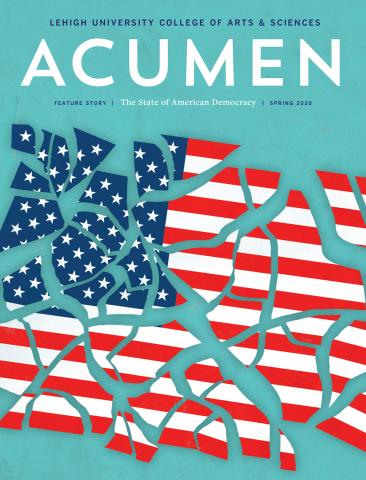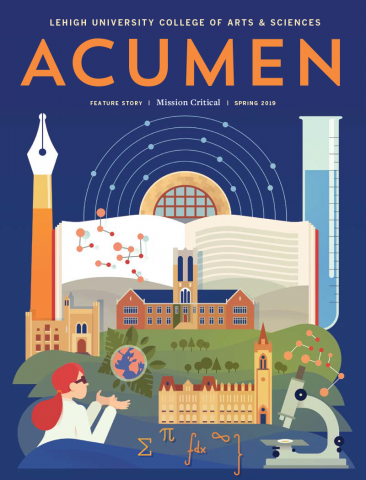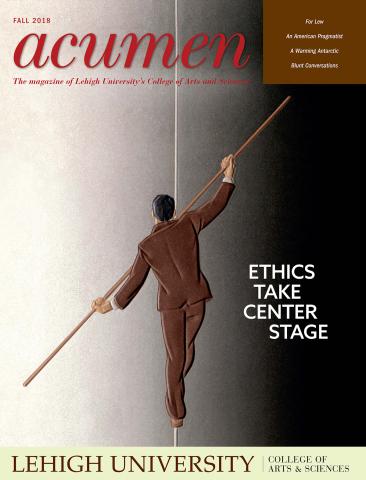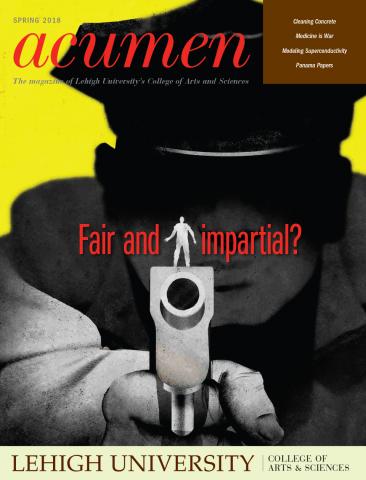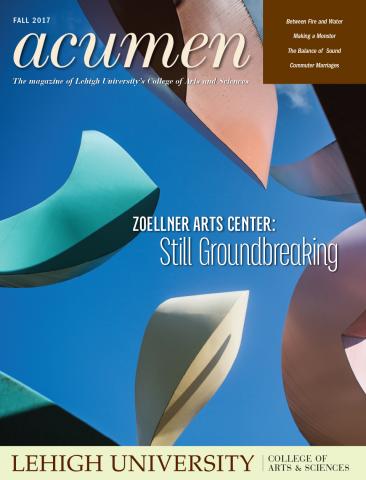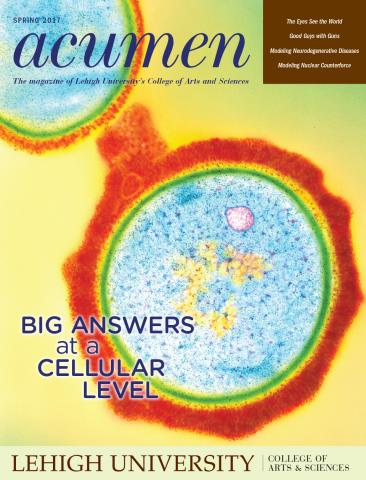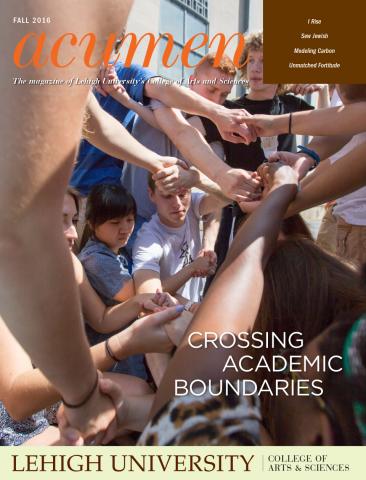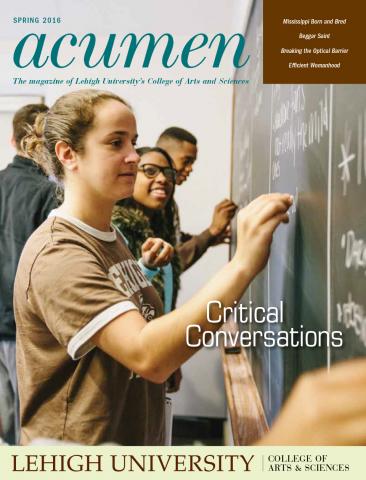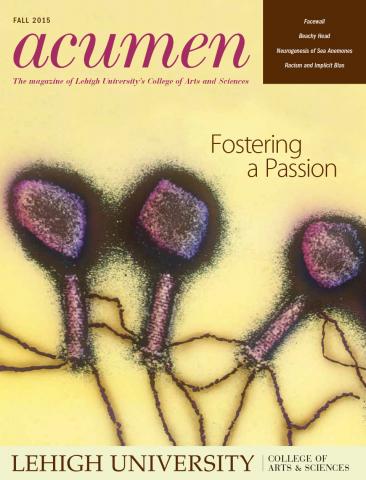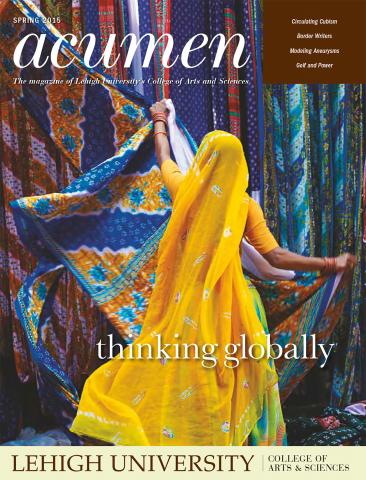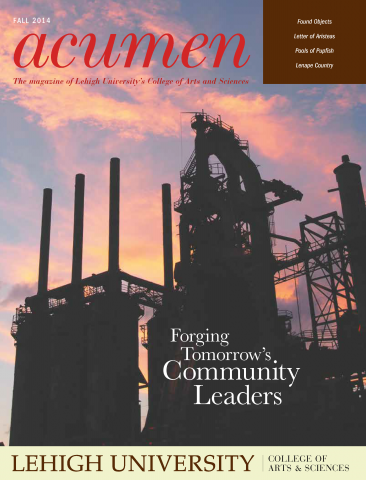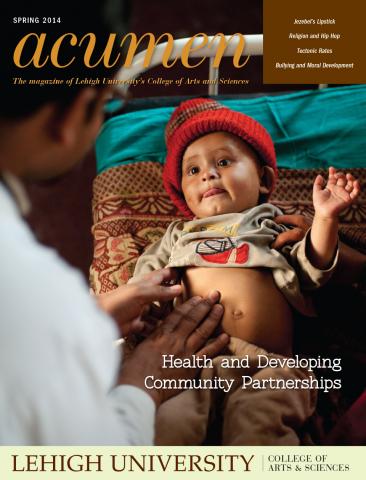
Jimmy Hamill ranks his decision to apply to graduate school at Lehigh University among the best he has ever made.
At the time, Hamill, a graduate of St. Joseph’s University, was working on the Rosebud Reservation in South Dakota through the Jesuit Volunteer Corps. While on the Rosebud, Hamill wore many hats, ranging from radio deejay to writing teacher.
“What was super-formative about that year,” he says, “was the insight into the history of America, how native populations were robbed, and it lit a fire in me. I saw firsthand the material reality of how systems of inequity are working in the world.
“It was the most vibrant community. They invited me into very intimate spaces, to have meals with them, to be in sweat lodges. They were welcoming and trusting to allow a non-native to be there, and I am so grateful for that opportunity to have a job and work in a context, to live and experience the theories I am now learning about,” he says.
It just so happened, according to Hamill, that, as the conclusion of his one-year assignment at Rosebud was approaching, his former campus minister at St. Joe’s emailed him some information about Lehigh’s English department.
“She asked me if I had ever heard of this program—literature and social justice. She said that it seemed like a perfect fit (for me),” Hamill recalls. “I applied, and by some stroke of luck, I got in. It was one of the best decisions of my life.”
In 2015, Hamill left South Mountain with a Master of Arts degree in English in hand, ready to sing the praises of the Bethlehem-based university that had been his home for the better part of two years.
He landed a job with a nonprofit organization in the Baltimore area but knew that he wasn’t quite where he was supposed to be. He would spend the remainder of his two years working for an academic publishing firm outside the city.
As he was trying to figure out just what he was meant to do next, Hamill realized that, each evening after work, he was finding himself delving into and rereading the textbooks and research materials he had carried with him from his master’s degree program at Lehigh. Clearly, this was a sign.
Fast-forward to 2018, and Hamill is back among his friends and colleagues in Lehigh’s English department—and he couldn’t be happier. This time, he’s pursuing a Ph.D. in English.
Born in Jersey City, N.J., Hamill grew up in Howell Township in Monmouth County in a very Catholic household. He attended high school at the private, all-male Christian Brothers Academy.
He says his Catholicism was a big part of his upbringing and particularly influential when he came out as a gay man.
Hamill describes himself as both gay and Catholic, and these seemingly competing aspects of who Hamill is are also shaping his doctoral research at Lehigh.
“I am curious how queer writers in American literature are wrestling with the narrative of religion,” he explains. “How are they portraying religious characters? As someone who is a gay Catholic and experienced a lot of violence, I am starting to examine and look through literature that is finding parallels between the religious rhetoric and queer experiences.
“I am excited for it. As a gay Catholic, this is close to home for me. I want my research to feel impactful. I want my research to have an impact on a wide community beyond the scope of academia,” he adds.
The majority of graduate students in the English department get funding to support their academic pursuits by being paid to teach undergraduate English courses. However, Hamill is doing something a bit different. He is supporting himself during his studies by working as a graduate assistant in Lehigh’s Pride Center for Sexual Orientation & Gender Diversity.
Hamill describes the Pride Center as “a space dedicated to programming, education and advocacy for the LGBTQ+ community on campus and beyond. It is a welcome place for allies.”
The specifics of his job include everything from logistical support for events, like reserving rooms, to handling the center’s social media accounts.
There is a theoretical aspect to the job, too—including research in queer theory—and Hamill gushes when he talks about how his supervisors, Pride Center Director Chelsea Gilbert and Associate Director Scott Burden even allowed him to write a book chapter and redesign an intern syllabus.
“They are incredible folks to work for,” he says. “They are really trying to make this meaningful for me.”
Hamill is particularly grateful for the department’s willingness to allow him to pursue a graduate assistant position that isn’t connected to teaching.
“They are giving me opportunities to build skill sets in a multitude of arenas,” he says. “To learn supervisory skills. To see that academia is one of many avenues for productivity in the world. It’s good to know that.”
With only one year of the Ph.D. program under his belt, Hamill estimates he will be finished in 2022. He has a pretty specific idea of what he would like to do when he is done.
“I would love to teach at a Jesuit college and bring (my area of research) into those spaces, spaces where it is not always there,” he explains. “My major hope is a teaching-heavy position where my pedagogy is at the forefront of what I am known for. I would like to do something with a lot of community engagement, a lot of experiential learning that incorporates the larger community. That would be my dream.”
Until then, Hamill says he feels he has once again found a home at Lehigh.
“If there is anything I would want folks to know,” he says, “it is that I, as a grad student, particularly in the English department, feel very supported. I brought lots of personal anxieties into my experience (at Lehigh), and I am grateful for their support. They have been part of my growth as a person and professional.
“When I told people what I was doing, they would say, ‘Why would you want to subject yourself to a Ph.D.?’ It is isolating. It can be very overwhelming,” he says. “But, that’s not the case when you find communities like this one. I am energized every day to do what I do. Even when I am at my wit’s end, I feel motivated.”






















